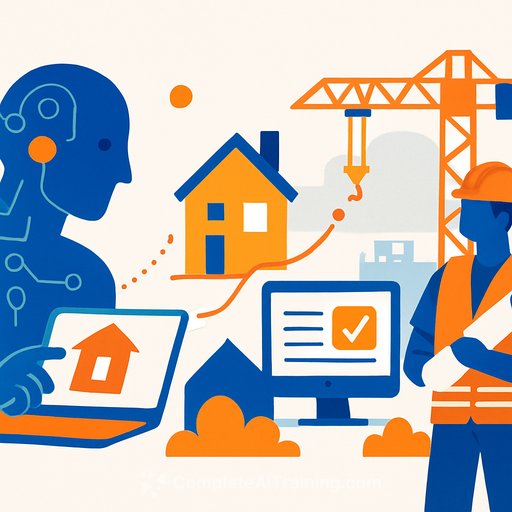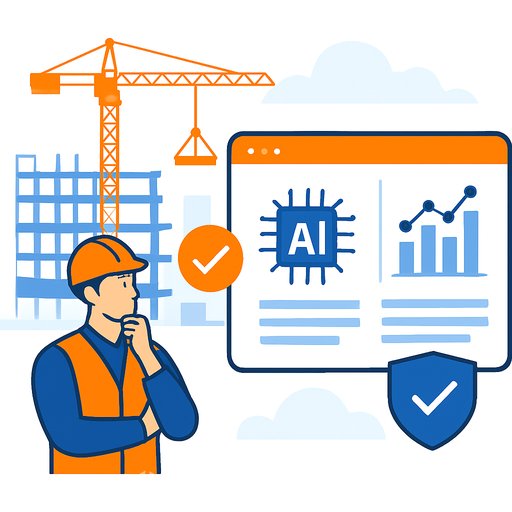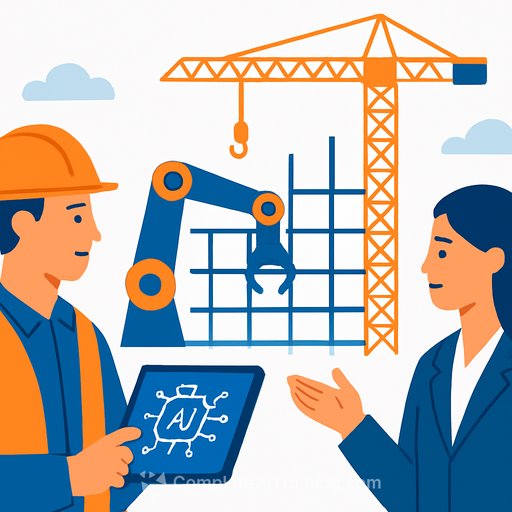This Is How AI Can Transform Real Estate Transactions
Introduction
Artificial Intelligence is streamlining real estate transactions by addressing long-standing issues like complexity, delays, and cost overruns in the construction industry. AI is reshaping project planning, execution, and management, creating more efficient workflows.
Leading Indian real estate brokerages have moved from informal, trust-based methods to embracing data, technology, and transparency. Technologies such as AI, machine learning, augmented/virtual reality, blockchain, and analytics are now core to their operations.
The shift accelerated during COVID-19 when lockdowns increased demand for digital property visits and paperless processes. Earlier, brokers relied on offline listings and personal networks, causing fragmentation and inefficiency. Today, broker aggregation platforms combine listings, transactions, analytics, and customer relationship management (CRM), enabling collaboration among brokers, developers, and clients.
AI and machine learning enhance lead generation, qualification, and personalization. AI chatbots offer 24/7 support, while predictive analytics assist developers with pricing and market forecasting.
The Tech Shift in Brokerage
Technology is transforming brokers into efficient, tech-enabled advisors without replacing their role. AI-driven platforms provide real-time data, automate workflows, customize communication, and improve lead management, resulting in faster closures and better conversions.
Success today depends on insights as much as connections. With AI tools, channel partners can analyze buyer behavior, forecast demand, and deliver solutions at scale. This shift from intuition-based to data-driven selling is setting new standards of professionalism in real estate.
Transforming On-Site Operations
AI is changing how site operations are managed. AI-powered drones monitor progress by comparing images to digital blueprints, quickly identifying inconsistencies. This early detection helps avoid costly structural or safety issues.
Machine learning models forecast material demand, suggest optimal quantities, and recommend alternative suppliers during price spikes or delays. This reduces downtime and improves cost control, especially in large developments.
AI also enhances safety by analyzing camera feeds to detect unsafe behaviors like missing helmets or unauthorized zone entry. This leads to safer sites and fewer incidents.
By automating repetitive, data-heavy tasks, AI allows professionals to focus on strategic decisions and creative problem-solving, making construction smarter, faster, and more reliable.
AI in Project Management
AI serves as a strategic tool to improve efficiency, reduce risks, and speed up delivery. Predictive planning uses vast datasets like weather, soil conditions, and timelines to optimize scheduling and procurement, minimizing delays and cost overruns.
Advanced tools such as AI-driven Building Information Modelling (BIM) help visualize complex designs, detect clashes early, and coordinate architects, engineers, and contractors to reduce rework.
During construction, computer vision and AI-enabled drones track progress, monitor materials, and enforce safety, improving site accountability and transparency.
AI also supports budget forecasting, providing alerts on deviations and suggesting corrective actions. It augments human judgment, freeing teams to concentrate on creativity and customer satisfaction.
Marketing and Customer Engagement
AI is reshaping marketing by analyzing data to identify customer preferences and market trends. Algorithms assess browsing behavior to recommend properties and analyze social media to spot demand clusters or suggest housing loans after booking.
These tools improve customer engagement and help developers fine-tune their offerings to reach buyers more effectively.
AI also enhances sales, marketing, and customer relationship management. It optimizes pricing, forecasts demand, and streamlines property listings for a smoother sales process.
Market tools now support seamless, often faceless, property listings, enquiry management, site visits, and bookings. In design and construction, AI helps with project scheduling and real-time progress monitoring through sensors, 3D captures, and drones. These applications improve project resilience, reduce costs, and enhance customer experience.
Looking Ahead
Artificial intelligence is gradually becoming a core part of real estate and construction operations. While adoption has been cautious, small steps over the years are paving the way for broader integration of new technologies. This evolution is driving better efficiency, transparency, and professionalism across the industry.
- Explore AI courses tailored for real estate and construction professionals at Complete AI Training.
- Stay updated with the latest AI tools and applications to enhance your workflows and decision-making.
Your membership also unlocks:






